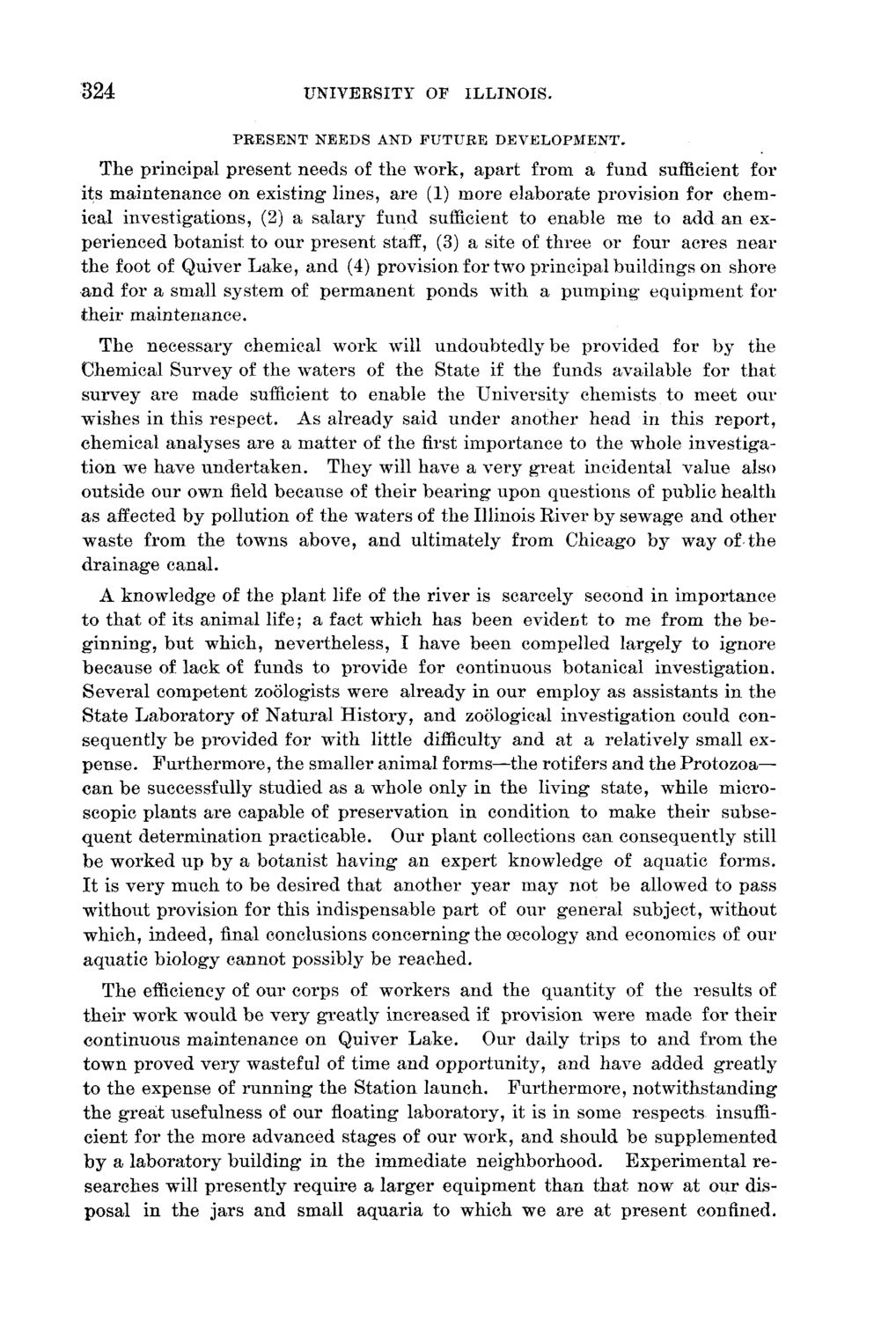| |
| |
Caption: Board of Trustees Minutes - 1896
This is a reduced-resolution page image for fast online browsing.

EXTRACTED TEXT FROM PAGE:
324 UNIVERSITY OF ILLINOIS. PRESENT NEEDS AND FUTURE DEVELOPMENT. The principal present needs of the work, apart from a fund sufficient for its maintenance on existing* lines, are (1) more elaborate provision for chemical investigations, (2) a salary fund sufficient to enable me to add an experienced botanist to our present staff, (3) a site of three or four acres near the foot of Quiver Lake, and (4) provision for two principal buildings on shore and for a small system of permanent ponds with a pumping equipment for their maintenance. The necessary chemical work will undoubtedly be provided for by the Chemical Survey of the waters of the State if the funds available for that survey are made sufficient to enable the University chemists to meet our wishes in this respect. As already said under another head in this report, chemical analyses are a matter of the first importance to the whole investigation we have undertaken. They will have a very great incidental value also outside our own field because of their bearing upon questions of public health as affected by pollution of the waters of the Illinois Eiver by sewage and other waste from the towns above, and ultimately from Chicago by way of the drainage canal. A knowledge of the plant life of the river is scarcely second in importance to that of its animal life; a fact which has been evident to me from the beginning, but which, nevertheless, I have been compelled largely to ignore because of lack of funds to provide for continuous botanical investigation. Several competent zoologists were already in our employ as assistants in the State Laboratory of Natural History, and zoological investigation could consequently be provided for with little difficulty and at a relatively small expense. Furthermore, the smaller animal forms—the rotifers and the Protozoa— can be successfully studied as a whole only in the living state, while microscopic plants are capable of preservation in condition to make their subsequent determination practicable. Our plant collections can consequently still be worked up by a botanist having an expert knowledge of aquatic forms. It is very much to be desired that another year may not be allowed to pass without provision for this indispensable part of our general subject, without which, indeed, final conclusions concerning the oecology and economics of our aquatic biology cannot possibly be reached. The efficiency of our corps of workers and the quantity of the results of their work would be very greatly increased if provision were made for their continuous maintenance on Quiver Lake. Our daily trips to and from the town proved very wasteful of time and opportunity, and have added greatly to the expense of running the Station launch. Furthermore, notwithstanding the great usefulness of our floating laboratory, it is in some respects insufficient for the more advanced stages of our work, and should be supplemented by a laboratory building in the immediate neighborhood. Experimental researches wTill presently require a larger equipment than that now at our disposal in the jars and small aquaria to which we are at present confined.
| |